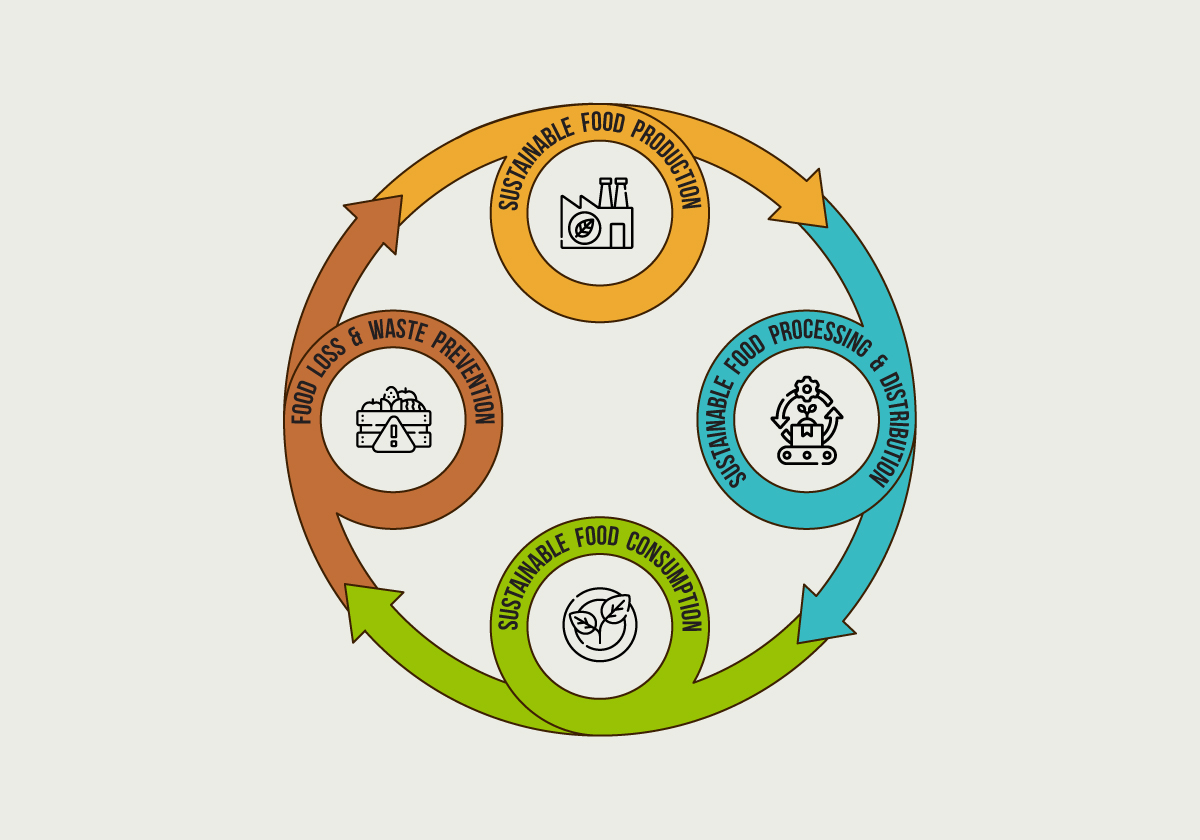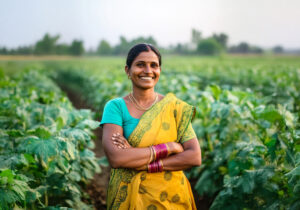By 2050, global food demand is projected to rise by a daunting 70%, posing unprecedented challenges to our planet’s resources and ecosystems. As we stand at this critical juncture, building a sustainable food system is no longer an option but a necessity. A sustainable food system ensures that everyone has access to nutritious food while preserving the environment, safeguarding livelihoods, and promoting social equity. The stakes could not be higher, and the time to act is now.
What’s at Stake?
Environmental Impact
Modern agriculture, as it stands, is a significant driver of environmental degradation. It accounts for a whopping 70% of global freshwater use, often depleting vital water reserves. The conversion of forests into farmland contributes to deforestation, loss of biodiversity, and increased greenhouse gas emissions, accelerating climate change. Without a shift to more sustainable practices, the environmental toll will only escalate, pushing our planet’s systems closer to a breaking point.
Food Security
Unsustainable agricultural practices threaten the very foundation of global food security. Depleted soils, polluted water sources, and extreme weather events linked to climate change jeopardize crop yields and food supplies. This precarious situation could lead to widespread hunger, especially in vulnerable regions already grappling with food scarcity. Ensuring a sustainable food system is essential to meeting the nutritional needs of a growing population.
Livelihoods
The livelihoods of millions of farmers are at risk due to soil degradation, water scarcity, and climate-related challenges. These issues disproportionately affect smallholder farmers, who make up the backbone of the global agricultural sector. Supporting sustainable practices not only enhances resilience but also ensures economic stability for farming communities worldwide.
The Role of Millets in a Sustainable Food System
As the world searches for solutions to build a resilient and sustainable food system, millets emerge as a powerful ally. These ancient grains, often overlooked in modern diets, are proving to be an invaluable resource in addressing the challenges of food security, environmental preservation, and agricultural sustainability. Here is how millets can contribute:
Efficient Water Use:
•Millets require 70% less water than traditional staple crops like rice and wheat.
•Their ability to thrive in arid and semi-arid regions reduces pressure on freshwater resources.
Low Environmental Impact:
•Millet cultivation emits significantly fewer greenhouse gases compared to high-input crops.
•Their adaptability to poor soils minimizes the need for chemical fertilizers, reducing pollution.
Promotion of Biodiversity:
•Millets support crop diversity, reducing reliance on monocultures that deplete soil nutrients and harm ecosystems.
•They attract a variety of beneficial organisms, fostering healthier agricultural landscapes.
Resilience to Pests and Diseases:
•These grains are naturally resilient to many pests and diseases, lowering the need for chemical pesticides.
•This trait enhances food safety and reduces environmental contamination.
Nutritional Benefits:
•Millets are rich in essential nutrients such as iron, calcium, and dietary fiber, making them a superfood for combating malnutrition.
•Their low glycemic index supports better blood sugar management, appealing to health-conscious consumers.
Economic Advantages for Farmers:
•Cultivating millets can offer smallholder farmers a sustainable income source due to their low input requirements.
•They provide a buffer against crop failures caused by erratic weather patterns, improving agricultural resilience.
Millets, with their myriad benefits, stand as a cornerstone of sustainable agriculture, demonstrating how traditional wisdom can align with modern environmental and nutritional goals.
How We Can Build a Sustainable Future
Creating a sustainable food system demands collective effort and commitment. Here are actionable steps to guide the way:
- Support Sustainable Agriculture Practices: Encourage crop rotation, agroforestry, and organic farming to enhance soil health and reduce chemical dependency. Governments and organizations must provide farmers with the resources and training needed to adopt these methods.
- Choose Planet-Friendly Foods: Opt for foods with a lower environmental footprint, such as millet, legumes, and locally grown produce. Consumer demand for sustainable options can drive significant change in production practices.
- Reduce Food Waste: Approximately one-third of all food produced globally is wasted. By minimizing food waste through better storage, mindful consumption, and redistribution, we can ease pressure on agricultural systems.
- Support Local Farmers: Purchasing directly from local farmers not only bolsters their livelihoods but also reduces the carbon footprint associated with transporting food over long distances.
Act Now for Tomorrow
The need to build a sustainable food system has never been more urgent. By preserving the environment, ensuring food security, and protecting the livelihoods of farmers, sustainable practices hold the key to a healthier, more equitable future. Each one of us has a role to play- whether through mindful food choices, reducing waste, or advocating for systemic change. Together, we can create a resilient food system that meets the needs of today without compromising the resources of tomorrow. Let’s act now, for the sake of our planet and future generations.






